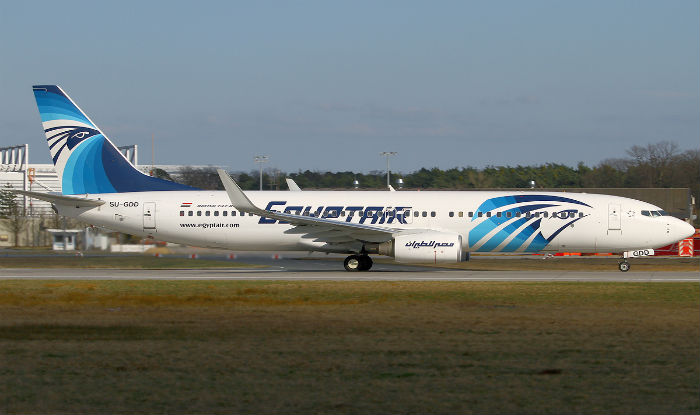CAIRO (Reuters) – EgyptAir said in a statement on Tuesday that only crew and four foreigners remained on a hijacked Egyptian plane that was forced to divert to Cyprus. It had said in a previous statement that the number of foreigners remaining on the aircraft was five.

INITIAL REPORT
EgyptAir flight MS181 en route from Alexandria to Cairo has been hijacked and has landed in Cyprus, Cypriot officials have stated. It was also confirmed that the plane’s pilot was threatened by a passenger with a suicide belt.
The Civil Aviation Ministry says that the pilot of the EgyptAir plane, Omar Al-Gammal, told the authorities he was threatened by a passenger with a suicide belt. This has also been confirmed by Cyprus Broadcasting Corporation, who said that one hijacker is believed to be strapped with explosives and the person has ordered police to stand clear of the aircraft.
Egyptian state media say that the hijacker is an citizen of Egypt. He has been named as Ibrahim Samaha and was sitting in seat K38. According to the Greek television station Sky, the hijacker has demanded a translator and wants political asylum in Cyprus.
The aircraft is an A320 belonging to EgyptAir. It landed in Larnaca at 08:46 local time, with 81 passengers on board.
Larnaca Airport has been closed, while ambulances have been sent to the scene.
This latest incident will be a bitter blow to the safety reputation of Egypt’s air industry, which is still reeling after a bomb on a Russian passenger plane on October 31, 2015, killed all 224 people on board.
Islamic State claimed responsible for bringing down the Russian A321 passenger jet over Sinai, which was bound for St. Petersburg.
Two employees at Sharm el-Sheikh Airport were arrested on suspicion of assisting those who planted the explosive device on the Russian jet that crashed in Sinai.
Earlier last November, an AP investigation found that Sharm el-Sheikh Airport had many gaps in security, such as lax searches at the entry gate and poor quality of scanning devices. Seven officials involved in security at Sharm el-Sheikh Airport, several with more than a decade’s service, told AP of the lapses, speaking on condition of anonymity.
A 10-year-old CTX scanner had broken down several times because operators didn’t use it properly, an official at the airport said. “I have seen people unplug it to save power.”
Another official added that the machine wasn’t working properly at all and only managed to scan a sample of the bags, and not all the contents that they contained.

Leave a Reply